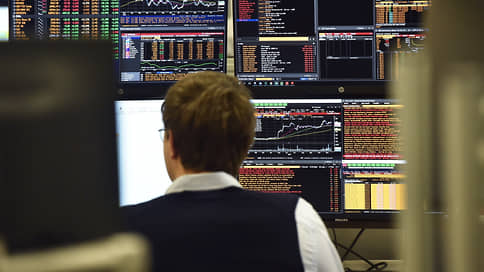The market has partially mobilized
[ad_1]

The news about the partial mobilization caused a wave of sales in the Russian financial market. However, by the end of trading, investors calmed down a bit, and by the end of the day, the Moscow Exchange index lost only 3.8%, although at the beginning it fell by 10%. The dollar exchange rate, rising to 62.8 rubles/$, closed at 60.7 rubles/$. Experts expect further decline in quotes, albeit at a slower pace. The market may be supported by massive dividend payments, primarily from Gazprom.
Ad at the beginning of the day about the partial mobilization caused another wave of sell-offs in the stock market. Immediately at the opening of trading, the Moscow Exchange index collapsed by 10%, to the level of 2005 points, a minimum since February 24. The drop leaders were the most liquid shares of Gazprom, LUKOIL, Sberbank, Rosneft, which lost 11-15% in the first minutes of trading. However, an hour later, the securities won back most of the decline, and at the end of the day the index stopped at around 2130.71 points, “only” 3.8% lower than Tuesday’s close. The most liquid securities ended the day with a decline of 2-5.4%.
Given the low liquidity of the market and the dominance of individuals on it, their first reaction was quite sharp and emotional. “In the absence of details on the decisions made, many preferred to reduce investments in securities,” said Dmitry Skryabin, portfolio manager at Alfa Capital.
“Despite the fact that the decision of the authorities was expected, the market was not emotionally ready for it, as a result, we saw panic selling in a wide range of securities and going into cash, including the “toxic” dollar,” notes a source in a large management company.
However, the panic did not last long, and just half an hour after the opening of trading, investors began to buy back securities. “As additional information from officials emerged, we saw a quick recovery in share prices,” notes Dmitry Skryabin. “The most dangerous expectations have not materialized, while such key indicators as the exchange rate, inflation and interest rates remain stable,” said Viktor Tunev, chief analyst at Ingosstrakh Investments.
High volatility at the beginning of trading was also noted in the foreign exchange market. For most of the morning session, the rates remained stable, only around 10:00, at the opening of the main session, the dollar rate soared to 62.8 rubles / $, adding 2.2 rubles at once. and reaching a maximum since the beginning of August. However, for most of the session until the close, the rate was below the level of 61 rubles/$. At the same time, investors actively bought the Chinese currency, the volume of transactions with which reached a new high of 90.7 billion rubles, only slightly losing to the dollar (114 billion rubles). “Speculative pressure has failed, the Russian currency has returned to its usual range of short-term volatility,” summed up Vladimir Evstifeev, head of the analytical department at Zenit Bank.
There was also a short-term panic in the debt market. During the day, the yield of long issues of OFZ grew to 10.1-10.15% per annum, the maximum since the end of May, and the yield of two-three-year securities rose to 8.5-9% per annum. However, by the end of the day, yields rolled back below Tuesday’s closing values, to 9.7–9.9% and 7.9–8.6% per annum, respectively. At the same time, the Ministry of Finance did not hold the planned two OFZ auctions for 30 billion rubles. “due to the lack of bids at acceptable price levels.”
According to Dmitry Gritskevich, PSB Banking and Financial Market Analysis Manager, the ministry may try to enter the market in a week, although it will become more difficult to borrow under the current conditions. “The news about mobilization is theoretically capable of putting pressure on the domestic debt market, since it does not rule out an expansion of the federal budget deficit,” Vladimir Evstifeev believes. However, the amount of 30 billion rubles, which was planned to be raised by the end of the quarter, does not look large.
In the coming days, the market may continue to decline, but the amplitude of fluctuations will decrease.
“Referendums, the process of mobilization, the situation on the fronts and sanctions rhetoric are unlikely to be able to move the market much down,” Viktor Tunev believes. “There are no non-resident sellers on the market, and residents have nowhere to run,” he explains. At the same time, the results of the extraordinary meeting of shareholders of Gazprom on September 30 on dividends will be of great importance for the market. “If they are approved, this can give a positive impetus to the market, as well as possible decisions on dividends from LUKOIL and other large companies,” notes Dmitry Skryabin.
[ad_2]
Source link





